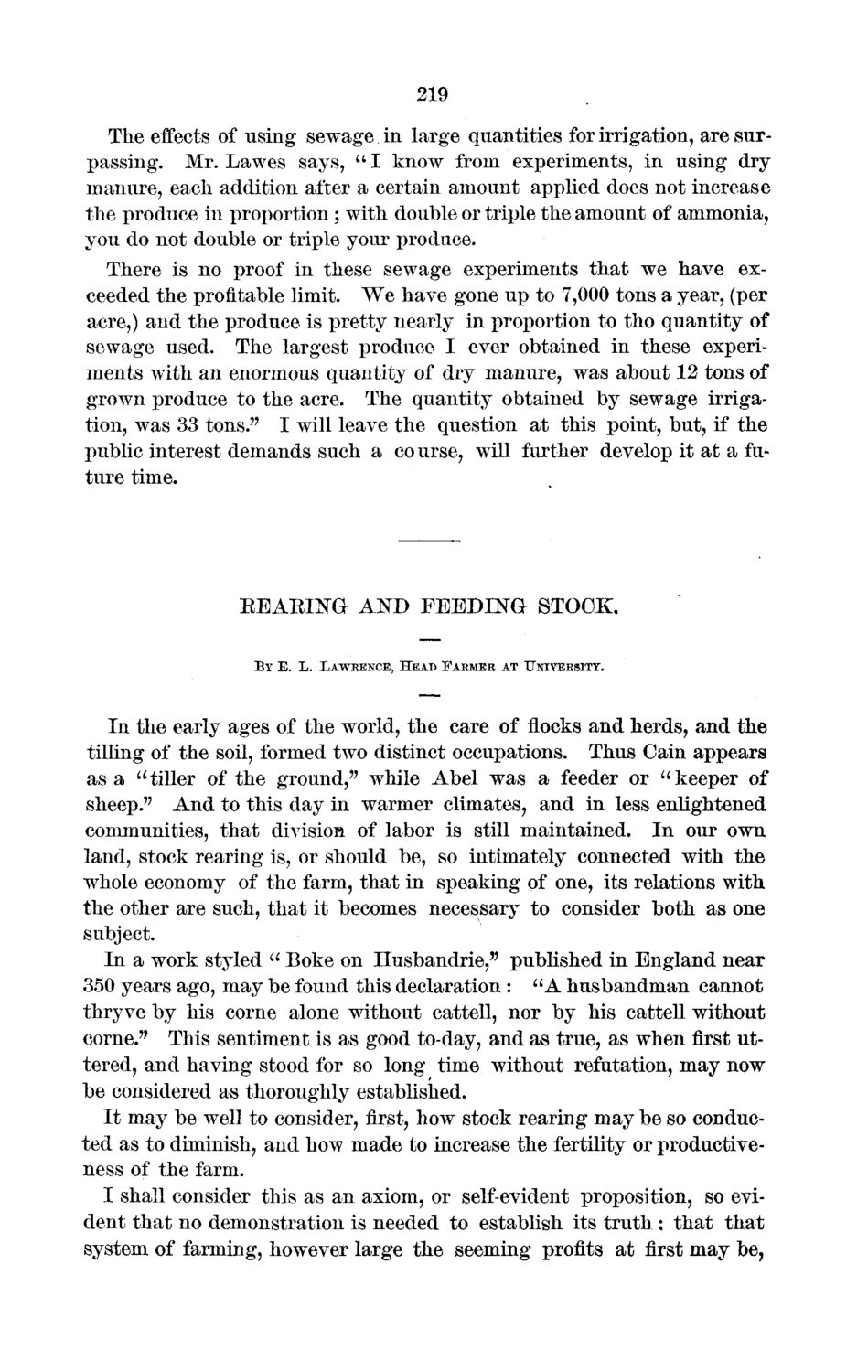| |
| |
Caption: Board of Trustees Minutes - 1872
This is a reduced-resolution page image for fast online browsing.

EXTRACTED TEXT FROM PAGE:
219 The effects of using sewage in large quantities for irrigation, are surpassing. Mr. Lawes says, " I know from experiments, in using dry manure, each addition after a certain amount applied does not increase the produce in proportion; with double or triple the amount of ammonia, you do not double or triple your produce. There is no proof in these sewage experiments that we have exceeded the profitable limit. We have gone up to 7,000 tons a year, (per acre,) and the produce is pretty nearly in proportion to tho quantity of sewage used. The largest produce I ever obtained in these experiments with an enormous quantity of dry manure, was about 12 tons of grown produce to the acre. The quantity obtained by sewage irrigation, was 33 tons." I will leave the question at this point, but, if the public interest demands such a co urse, will further develop it at a fu* ture time. BEARING AND FEEDING STOCK, BY E. L. LAWRENCE, HEAD FARMER AT UNIVERSITY. In the early ages of the world, the care of flocks and herds, and the tilling of the soil, formed two distinct occupations. Thus Cain appears as a "tiller of the ground/' while Abel was a feeder or "keeper of sheep." And to this day in warmer climates, and in less enlightened communities, that division of labor is still maintained. In our own land, stock rearing is, or should be, so intimately connected with the whole economy of the farm, that in speaking of one, its relations with the other are such, that it becomes necessary to consider both as one subject. In a work styled " Boke on Husbandrie," published in England near 350 years ago, may be found this declaration : "A husbandman cannot thry ve by his corne alone without cattell, nor by his cattell without corne." This sentiment is as good to-day, and as true, as when first uttered, and having stood for so long time without refutation, may now be considered as thoroughly established. It may be well to consider, first, how stock rearing may be so conducted as to diminish, and how made to increase the fertility or productiveness of the farm. I shall consider this as an axiom, or self-evident proposition, so evident that no demonstration is needed to establish its truth : that that system of farming, however large the seeming profits at first may be,
| |